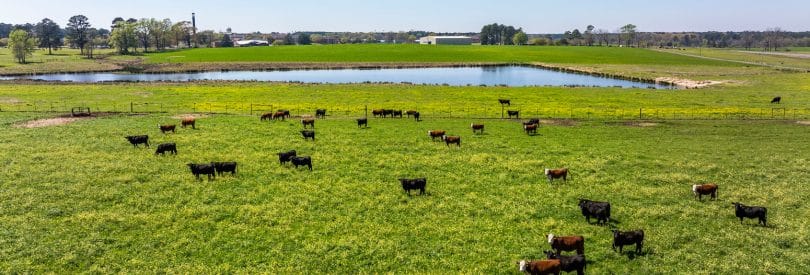in Agriculture
at SAU
Average Graduate Tuition and Fees Per Year | ||
In-State | Out-of-State | |
SAU | $6,894 | $9,810 |
Arkansas | $7,702* | $13,663* |
Texas | $7,502* | $16,686* |
Louisiana | $9,748* | $19,310* |
*Tuition and fees are calculated as an average of public four-year universities’ published tuition and fees. Source: Department of Education
Our programs are routinely recognized as the best value programs nationally. SAU offers out-of-state tuition waivers to students from Louisiana, Mississippi, Missouri, Oklahoma, Tennessee, and Texas who chose to live in university housing or reside in a bordering Texas county or Louisiana parish.

Core Courses (18 Hours)
- AGRI 6063 – Advanced Leadership for Agricultural Professionals
- AGRI 6083 – Professional Development in Agriculture
- AGRI 6123 – Philosophy of Agricultural Education
- AGRI 6133 – Experiential Learning
- AGRI 6153 – Leadership of Volunteers
- EDUC 6003 – Educational Research
Elective Courses
Select 15 hours from the following:
- AGRI 6143 – Adult Education in Agriculture
- AGRI 6163 – Practical Experiences for Career Orientation
- AGRI 6173 – Methods of Organizing and Teaching Career Orientation
- EDUC 5033 – Classroom Assessment
- EDUC 6043 – Current Issues and Trends in Education
- EDUC 6063 – Applications of Technology in Education
- EDUC 6083 – Application of Learning Theories
- EDUC 6403 – School Law
| Department: | |
| Hours Required: | 33 |
| Categories: | Graduate |
| Completion Time: | 2 years * |
| Delivery: | Online |
* Based on 2 classes per semester including summer
The Master of Science in Agriculture gives the graduate student advanced knowledge in the field of agricultural education, preparing the student to succeed in positions of leadership and management in secondary schools and extension education.
Specific Degree Requirements
Each candidate desiring to complete the Master of Science in Agriculture degree must complete 33 semester hours, 18 of which are required core courses and 15 elective hours. The eleven courses will be offered in one calendar year. All courses will be taught online. This program is designed to best serve agricultural educators in providing a quality education to place-bound agricultural professionals.
Learning Goals
- Our graduates can communicate effectively. Effective communication embraces oral, visual, and language arts, including the ability to listen, speak, read, and write. It includes the effective use of various resources and technology for personal and professional communication.
- Our graduates are prepared to be personally and socially responsible citizens, having the ability to apply knowledge and skills that encourage responsible civic engagement for the advancement of society. This includes an understanding of their own and other cultures and societies and the ability to make informed and ethical decisions.
- Our graduates can think critically, solve problems, and make informed decisions. Critical thinking is the ability to analyze, synthesize, and evaluate information and ideas from multiple perspectives. It includes the accurate use of terminology, information literacy, the application of scholarly and scientific methods, logical argument, and capability for analysis and problem solving.
- Our graduates can use technology effectively in their fields. Information literacy is the ability to determine the nature of required information, to access it effectively, and to evaluate it critically. It includes the responsible, legal, and ethical use of information.
- Our graduates have content knowledge in their chosen fields and the necessary skills to be successful. Content knowledge is discipline and degree specific.
farming, ag education, agri, farm, food, grow
Program Contact
Dr. Copie Moore
870-235-4343
cdmoore@saumag.edu

About SAU
Southern Arkansas University offers personalized tour visits, faculty and staff who care about student success, and a caring campus community. SAU also offers traditional and unique academic degree programs that are ranked nationally for quality and affordability.
Nestled in a quiet and beautiful part of south Arkansas, SAU is a great place to call home and to study a broad range of academic programs, including some unique offerings to the state and region. Along with boasting a complete college experience on campus, the University is a short drive from outdoor activities and is central to many regional hubs, such as Texarkana, Shreveport, Little Rock, etc.
Established in 1909, SAU has built on its dedication to student achievement and continues to grow, both on campus and online, with more than 80 degrees in four distinct colleges and the School of Graduate Studies.
"*" indicates required fields
